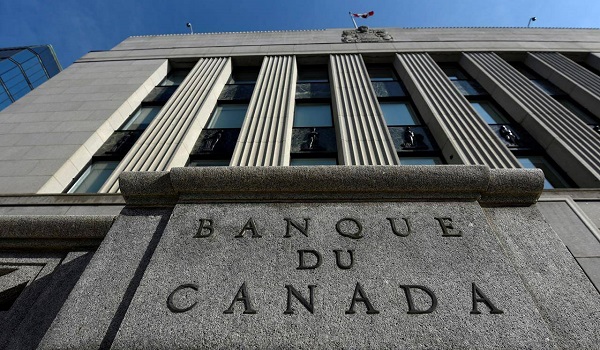Provinces asked to withdraw COVID-19 shots and leave gap for awaiting new ones’ approval
Most Canadians likely won’t be able to get a COVID-19 vaccine in the month of September after the Public Health Agency of Canada instructed provinces to withdraw last season’s shots to make way for updated shots that the federal regulator has yet to approve.
Officials in Quebec, Ontario, Manitoba, Saskatchewan and Alberta told The Globe and Mail Wednesday that they removed doses targeting the old XBB variant effective this past weekend, leaving a gap in access that won’t close until the country receives new vaccines that are a closer match for the current variants, probably in late September or early October.
B.C. Provincial Health Officer Bonnie Henry said her province has no plans to dispose of the old vaccines until new ones are approved. Other provinces did not respond to The Globe’s requests for comment.
Provinces that ordered the XBB vaccines withdrawn as of Aug. 31 or Sept. 1 said they did so at the behest of PHAC. Andrew Livingstone, a spokesman for Alberta Health, said PHAC officials communicated those instructions at a July 25 meeting of the federal-provincial-territorial Canadian Immunization Committee.
However, Health Canada said by e-mail late Tuesday that the old shots were not supposed to be pulled until the new formulations were approved.
“Health Canada is currently reviewing on an expedited basis, submissions from Pfizer, Moderna and Novavax for updated COVID-19 vaccines,” André Gagnon, a spokesman for Health Canada, said Tuesday. “The withdrawal of currently available COVID-19 XBB vaccines should be timed to align with authorization decisions of the new formulation vaccines to ensure Canadians have uninterrupted access to COVID-19 vaccines.”
It was not clear how Canadians could have uninterrupted access to COVID-19 vaccines if the old shots have been ordered withdrawn and new shots have yet to be approved. The federal government’s online COVID vaccination guide now features a notice saying, “after August 31, 2024, there will no longer be XBB.1.5 COVID-19 vaccines available for use in Canada.”
The country is in the midst of a late-summer wave of COVID, driven by waning immunity and a variant called KP.3.1.1, which accounted for an estimated 62.2 per cent of variants in Canada as of Aug. 25, up from 23.7 per cent as of July 21.
Fortunately, most Canadians have hybrid immunity from past vaccinations and infections that protects them from severe COVID illness. As a result, hospitals have faced much less strain from the virus this summer than in the early years of the pandemic.
KP.3.1.1 is a close relative of KP.2, the variant targeted by new mRNA shots from Pfizer and Moderna. The U.S. FDA approved the new formulations on Aug. 22. Health Canada said it expects to complete reviews of the new mRNA shots and a revamped protein subunit vaccine from Novavax by early autumn.
PHAC provided a further statement Wednesday night saying that PHAC and the provinces are “collaborating” on a plan to transition from the current vaccine supply to those targeting current strains.
“The plan provides each province and territory the flexibility to ensure ongoing access to current supply until new vaccines are approved. This includes a period of transition to full removal. PHAC is in touch with provinces and territories to help ensure common understanding of the transition and continued access to COVID-19 vaccines. The Government of Canada also maintains a federal reserve of XBB vaccines, for any unexpected public health need.”
For the vast majority of Canadians, waiting until the fall for a vaccine that better matches today’s dominant COVID variants is the right move, said Isaac Bogoch, an infectious-disease physician at Toronto’s University Health Network.
“But there will always be extenuating circumstances where someone might need a vaccine earlier, and this would pose a problem to such individuals,” he said.
In Ontario, Chief Medical Officer of Health Kieran Moore issued a memo on Aug. 27 saying that the Public Health Agency of Canada ordered a market withdrawal of all doses targeting the XBB variant effective Sept. 1.
Julie Kryzanowski, Saskatchewan’s Deputy Chief Medical Health Officer, issued a memo similar to Ontario’s on Aug. 28. Dale Hunter, a spokesman for that province’s Ministry of Health, confirmed that “all health care facilities, pharmacies and physician offices in Saskatchewan” disposed of their remaining XBB shots on Aug. 31.
Quebec’s health ministry said that some vaccine appointments would have to be cancelled as a result of PHAC’s withdrawal order, but that Quebec anticipates the access gap will last as little as two weeks.
The Manitoba government, meanwhile, said that it asked vaccine providers to return unused XBB doses to the province as of the end of August. “Specific requests for patients that may still need a dose of the current vaccine within a short time frame can still be considered on a case-by-case basis,” the province’s Ministry of Health said in an unattributed e-mail.
B.C. is taking a different approach. The COVID vaccine will remain available there until new products are approved, according to a statement attributed to Dr. Henry.
“We are encouraging people in B.C. to wait for the new formulation if they can – but we are ensuring in the interim that vaccine remains available for people who may need it,” such as those preparing to travel, visit an immunocompromised relative or undergo surgery.
This article was first reported by The Globe and Mail












